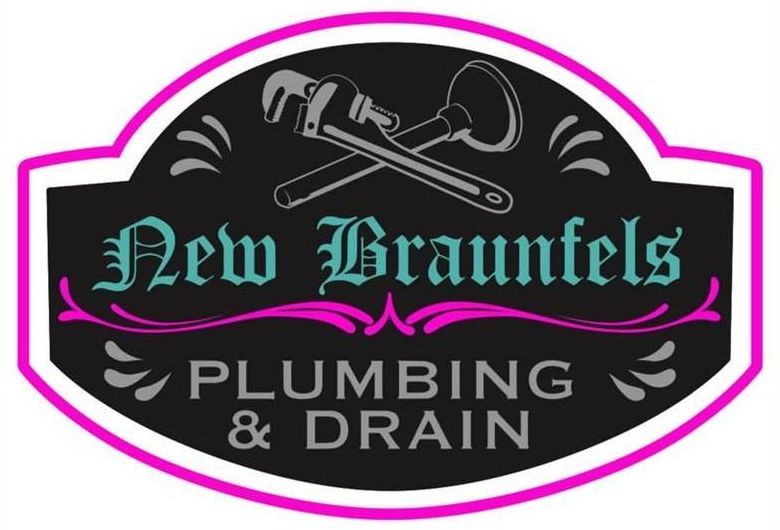FAQs
New Braunfels Plumbing & Drain
Have a drain or plumbing-related question? We have the answer. Check out these FAQs and give New Braunfels Plumbing and Drain a call today for more information!
Should I get my main line cleaned if it has never backed up?
Our experts recommend that you have your main line cleaned every one to five years, depending on your location (i.e., age of sewer, length, trees and shrubs in area, etc.) Even if you don't have the line cleaned, we recommend at least having a camera inspection. We've experienced roots that can grow through the seams in the line, and when the lines run parallel with the sewer, the roots can grow to 1/2 inch or more, adding hundreds of pounds of pressure and eventually breaking the line. In our experience, repairing a broken line can cost $3,000 to $50,000. Preventive maintenance is always cheaper! For drain cleaning, camera inspections, and more, contact New Braunfels Plumbing and Drain.
My line has roots, is my pipe broken?
Not necessarily. The pipe might be broken, but oftentimes the pipe is intact, and the roots have grown in through the seams of the pipe. To address your main line, as well as other drain cleaning services, reach out to New Braunfels Plumbing and Drain today.
What's causing that foul smell from around my drain?
There can be multiple reasons for a foul sewer odor, including sewer back-ups, leaks from rotted or cracked pipes, a clogged drain or vent, or a wax ring that is not sealed. However, the most common reason is that the p-trap is dry.
According to HomeGuide, drain cleaning usually takes one to three hours, depending on the clog’s type, size, and location. New Braunfels Plumbing and Drain is here to help with drain cleaning. Give us a call to get started.
What causes drains to clog?
Drain clogs occur due to accumulation of various substances. In kitchens, grease solidification traps debris, while bathroom drains often accumulate hair and soap residue. Outdoor drains can be obstructed by tree roots infiltrating sewer lines. Common culprits include hair, soap scum, grease, food particles, and foreign objects such as wipes or toys.How can I tell if my drain is clogged?
Indications of a clogged drain include slow water drainage, water accumulating around the drain, unusual gurgling noises, unpleasant odors, or water backing up into sinks, bathtubs, or toilets. If multiple drains are affected simultaneously, it may indicate a more significant issue within the main sewer line.Can I clean a clogged drain myself?
Minor clogs can often be addressed using household methods such as a plunger, a combination of baking soda and vinegar, or a manual drain snake. However, these DIY approaches may not fully resolve deeper obstructions. Improper use of tools or chemicals can potentially damage pipes, so professional assistance is recommended for persistent drainage issues.Are chemical drain cleaners safe to use?
While chemical drain cleaners can be effective, they often contain harsh ingredients like sulfuric acid or lye. These substances may corrode pipes, pose health risks, and negatively impact the environment. Safer alternatives include enzymatic cleaners or natural solutions such as baking soda and vinegar. However, professional plumbers can offer more effective and pipe-friendly methods for stubborn clogs.How often should I have my drains professionally cleaned?
For most residential properties, professional drain cleaning every one to three years is generally sufficient to prevent buildup. Properties with heavy drain usage, older plumbing systems, or frequent clog issues may benefit from annual cleanings. Regular maintenance significantly reduces the risk of emergency blockages and extends the lifespan of your plumbing system.What are the best methods for drain cleaning?
Effective drain cleaning methods vary based on the severity of the clog. For minor blockages, plunging can be effective. Deeper obstructions may require a drain snake or auger. Hydro-jetting, which uses high-pressure water, provides thorough cleaning. Enzymatic cleaners are useful for organic buildup. Professional plumbers often employ hydro-jetting or camera inspections for comprehensive results, depending on the nature and location of the blockage.How can I prevent drain clogs?
Preventive measures for drain clogs include using drain screens to capture hair and debris, avoiding disposal of grease or food scraps down drains, regularly flushing drains with hot water, and scheduling periodic professional cleanings. For outdoor drains, ensure trees are planted at a safe distance from sewer lines to prevent root intrusion. These practices can significantly reduce the likelihood of clogs forming.When should I call a professional plumber for drain cleaning?
Professional plumbing assistance is advisable if you experience persistent clogs, slow drainage in multiple fixtures, foul odors, frequent backups, or signs of sewer issues such as sewage backup or gurgling toilets. These symptoms often indicate deeper blockages or pipe damage that require specialized equipment like hydro-jets or drain cameras for proper diagnosis and resolution.What are the benefits of professional drain cleaning?
Professional drain cleaning offers several advantages. It thoroughly eliminates buildup, preventing future clogs and extending the lifespan of your plumbing system. It also removes unpleasant odors and improves overall drain efficiency. Additionally, professional plumbers can utilize diagnostic tools like cameras to identify underlying issues such as pipe cracks or root intrusion, potentially saving you from costly repairs in the future.How long does it take to unclog a drain?
The duration of drain unclogging varies depending on the location and severity of the blockage. Surface-level clogs may be resolved in 30 minutes to an hour using a plunger or snake. More complex blockages or main sewer line issues could require two to three hours and advanced equipment such as hydro-jetting. The exact time frame can only be determined after a thorough assessment of the drainage problem.








Share On: